How To Keep Cat Teeth Clean: 7 Dental Care Tips From Vets
Cats are known for their independent nature and self-grooming habits, but when it comes to dental care, they often need a little help from their owners. Just like humans, cats can develop plaque, tartar, and other oral health issues if their teeth are not properly cared for.
As responsible pet owners, we must ensure that our feline friends have healthy teeth and gums. Not only can dental care help prevent bad breath and tooth decay, but it can also improve your cat's overall health and well-being. In this guide, we will discuss seven effective tips recommended by vets to keep your cat's teeth clean and healthy.
What Are The Common Dental Problems In Cats?
According to the American Veterinary Dental College, dental disease is one of the most common health problems in cats. It is estimated that by the age of three, about 70% of cats will have some form of dental disease. The most common dental issues in cats include periodontal disease, tooth decay, and oral tumors.
Periodontal disease occurs when plaque and tartar build up on the teeth and gums, leading to inflammation and infection. This can cause painful gum disease, tooth loss, and even jawbone damage if left untreated.
Tooth decay is also a common problem in cats, especially those who consume a diet high in carbohydrates. Bacteria in the mouth feed on these sugars and produce acid that can erode the enamel of the teeth, causing cavities.
Oral tumors are another concern for cats and can occur in various areas of the mouth. These growths can be benign or malignant and may require surgical removal.
Regular dental check-ups with a veterinarian can help identify these issues early on and prevent them from progressing into more severe health problems for your cat. Now, let's dive into some tips to keep your cat's teeth clean and prevent these common dental problems.
7 Tips For Keeping Your Cat's Teeth Clean
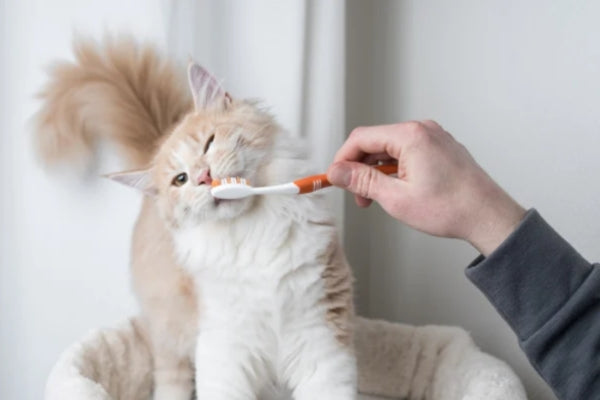
There are various ways to maintain your cat's dental health, but here are seven essential tips recommended by vets:
Regularly Brush Your Cat's Teeth
Brushing your cat's teeth is an essential aspect of maintaining their oral health. Just like humans, cats require daily brushing to remove plaque and prevent tartar build-up. It is best to start this routine while your cat is young, but it can be introduced at any age with patience and positive reinforcement.
You will need a small toothbrush or fingerbrush specifically designed for cats and pet-friendly toothpaste. Never use human toothpaste as it can be harmful to your cat's health.
Gently lift your cat's lips and brush the teeth in a circular motion, focusing on the gum line. Start with short sessions and gradually increase the time as your cat becomes more comfortable with the process. Remember to reward them with treats and praise to make it a positive experience.
Use Dental Treats And Toys
In addition to regular brushing, incorporating dental treats and toys into your cat's routine can be beneficial. These specially designed treats and toys help clean your cat's teeth while they chew and play.
Look for products that have the Veterinary Oral Health Council (VOHC) seal of approval, ensuring they are effective in reducing tartar and plaque build-up. You can also opt for treats and toys that contain enzymes to further aid in maintaining your cat's dental health.
Remember to monitor your cat while they are chewing on toys to avoid any choking hazards or tooth fractures. As always, consult with your vet before introducing any new treats or toys into your cat's diet.
Add Raw Bones To Their Diet
Raw bones are a natural way to keep your cat's teeth clean and strong. The chewing action helps remove plaque and tartar, and the calcium in bones can benefit their dental health and overall bone strength.
It is crucial to choose appropriate-sized bones for your cat and monitor them while they chew to avoid any potential choking or digestive issues. Consult with your vet before adding bones to your cat's diet, as some cats may have underlying health conditions that make this option unsuitable for them. Also, remember to never give cooked bones to your cat as they can easily splinter and cause harm.
Consider Dental Supplements Or Water Additives
Supplements or water additives can be an added boost to your cat's dental care routine. These products contain enzymes or other ingredients that help break down plaque and tartar, reducing the risk of oral health issues.
Consult with your vet to find the right dental supplement or water additive for your cat. They will consider your cat's age, overall health, and any pre-existing conditions before recommending a suitable product. It is essential to follow the instructions carefully and monitor your cat's response to the supplement or additive.
Also, keep in mind that these products should not be used as a substitute for regular brushing and professional cleanings. As with any new addition to your cat's diet, always consult with your vet before introducing dental supplements or water additives.
Schedule Professional Teeth Cleanings With Your Veterinarian
While daily oral care is crucial, it is also essential to schedule professional teeth cleanings with your veterinarian. These cleanings involve a thorough examination, removal of plaque and tartar, and tooth polishing.
Your vet may also take x-rays to ensure there are no underlying dental issues that require further treatment. Professional cleanings help prevent the progression of dental disease and can identify any potential concerns early on.
The frequency of professional cleanings will depend on your cat's age, breed, and overall dental health. Your vet may recommend yearly cleanings or more frequent visits if necessary. Remember to always consult with your veterinarian for the best course of action for your cat's individual needs.
Be Aware Of Any Changes In Your Cat's Eating Habits
Your cat's eating habits can be an indicator of their oral health. Be aware of any changes in their appetite, difficulty chewing or swallowing, drooling, or avoiding certain foods. These can all be signs of dental issues that require attention.
If you notice any changes in your cat's eating habits, consult with your veterinarian for a thorough examination and potential treatment options. Catching these issues early on can prevent further complications and keep your cat's dental health in check.
Keep Up With General Health Check-Ups
Regular check-ups with your vet are not only essential for your cat's overall health, but they also play a crucial role in maintaining their dental health. During these visits, your vet can assess your cat's oral health and identify any potential issues that may require treatment.
They can also provide advice on proper oral care techniques and recommend any necessary supplements or dental products. Keep up with these check-ups to ensure your cat's optimal health and well-being.
So these are some essential tips for keeping your cat's teeth healthy. Remember to start early, be consistent, and always consult with your vet for the best care plan for your furry friend's individual needs. By following these guidelines, you can help prevent dental issues and keep your cat's smile shining bright!
Why Is Dental Care Important For Cats?
Dental care is essential for cats to maintain good overall health and well-being. Poor dental hygiene can lead to various health problems, including gum disease, tooth decay, and even more severe issues such as organ damage. Regular brushing and professional cleanings can prevent these issues from arising and help keep your cat's teeth strong and healthy.
Additionally, dental diseases can be painful for cats and affect their ability to eat and enjoy treats. Proper dental care can prevent this discomfort and ensure that your cat continues to have a positive experience when it comes to food and treats. By taking care of your cat's teeth, you are also promoting their overall happiness and quality of life.
Additionally, dental health is closely linked to other aspects of a cat's well-being, such as their immune system. Poor oral hygiene can lead to bacteria entering the bloodstream and causing infections in other parts of the body. By keeping your cat's teeth clean and healthy, you are also promoting their overall physical health.
Does My Cat Need Professional Teeth Cleanings?
Yes, it is recommended to schedule regular professional teeth cleanings for your cat. While daily brushing and at-home care are crucial, a professional cleaning provides a more thorough examination and removes any tartar buildup that may be missed during brushing.
Your vet can also check for any underlying dental issues during these cleanings and provide treatment if necessary. The frequency of professional cleanings may vary based on your cat's individual needs and should be discussed with your vet.
Remember, professional cleanings do not replace daily brushing and oral care. It is essential to continue these practices at home for optimal dental health. So make sure to keep up with regular check-ups and professional cleanings for your beloved feline friend!
Is There Anything Else I Can Do To Keep My Cat's Teeth Healthy?
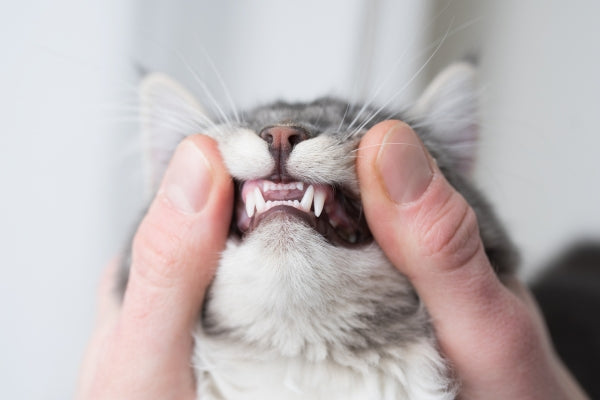
Aside from regular brushing and professional cleanings, you can also consult with your vet about supplements or water additives that may aid in your cat's dental care routine. Additionally, be aware of any changes in your cat's eating habits and schedule regular check-ups to catch any dental issues early on.
Ensuring good overall health for your cat also contributes to their dental well-being, so make sure they have a balanced diet and plenty of opportunities for physical activity. By following these tips and consistently caring for your cat's teeth, you can help prevent dental issues and keep their pearly whites shining bright!
Don't forget, to always consult with your vet for the best care plan for your individual cat's needs. Your vet is your partner in ensuring the best possible health for your furry friend and can provide personalized recommendations to keep their teeth healthy and strong.
FAQs
Is It Necessary To Brush My Cat's Teeth Every Day?
It is recommended to brush your cat's teeth at least 2-3 times a week. However, daily brushing is ideal for optimal dental health. If you are unable to do so, consider supplementing with water additives or dental treats.
Can I Use Human Toothpaste On My Cat's Teeth?
No, it is not safe to use human toothpaste on cats. These products contain ingredients that can be harmful to their digestive system. Always use toothpaste specifically made for cats and approved by your veterinarian.
How Do I Know If My Cat Has Dental Issues?
Signs of dental issues in cats include bad breath, difficulty eating, drooling, and avoiding certain foods. If you notice any changes in your cat's appetite or behavior, consult with your vet for an examination and potential treatment options. So always monitor your cat's eating habits and seek professional advice if necessary.
Conclusion
Taking care of your cat's dental health is crucial for their overall well-being and happiness. Remember to start early, be consistent with daily brushing and oral care, and schedule regular check-ups and professional cleanings with your veterinarian. By following these tips, you can help prevent dental issues and keep your cat smiling bright!
Also, keep an eye out for any changes in your cat's eating habits or behavior, and consult with your vet if you have any concerns. With proper dental care, you can ensure that your beloved feline friend stays healthy and happy for years to come.
So prioritize their dental health along with other aspects of their care, and always remember to consult with your vet for the best care plan for your individual cat's needs.




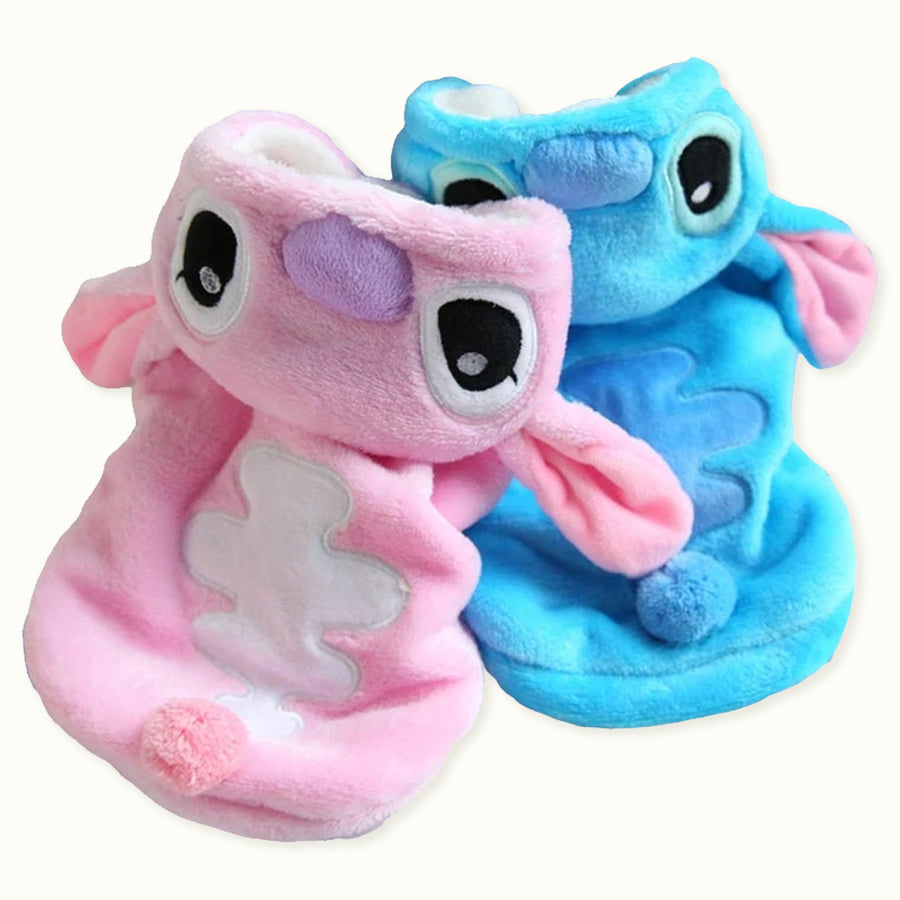
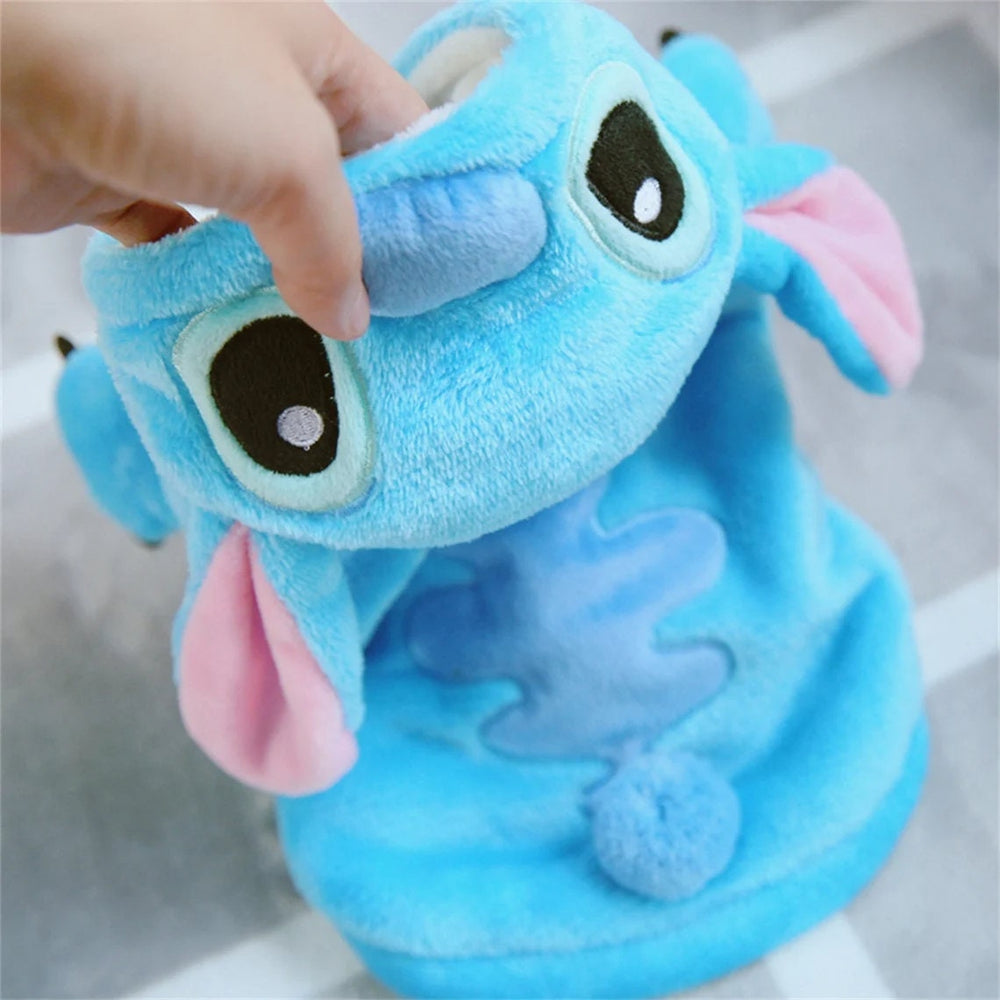



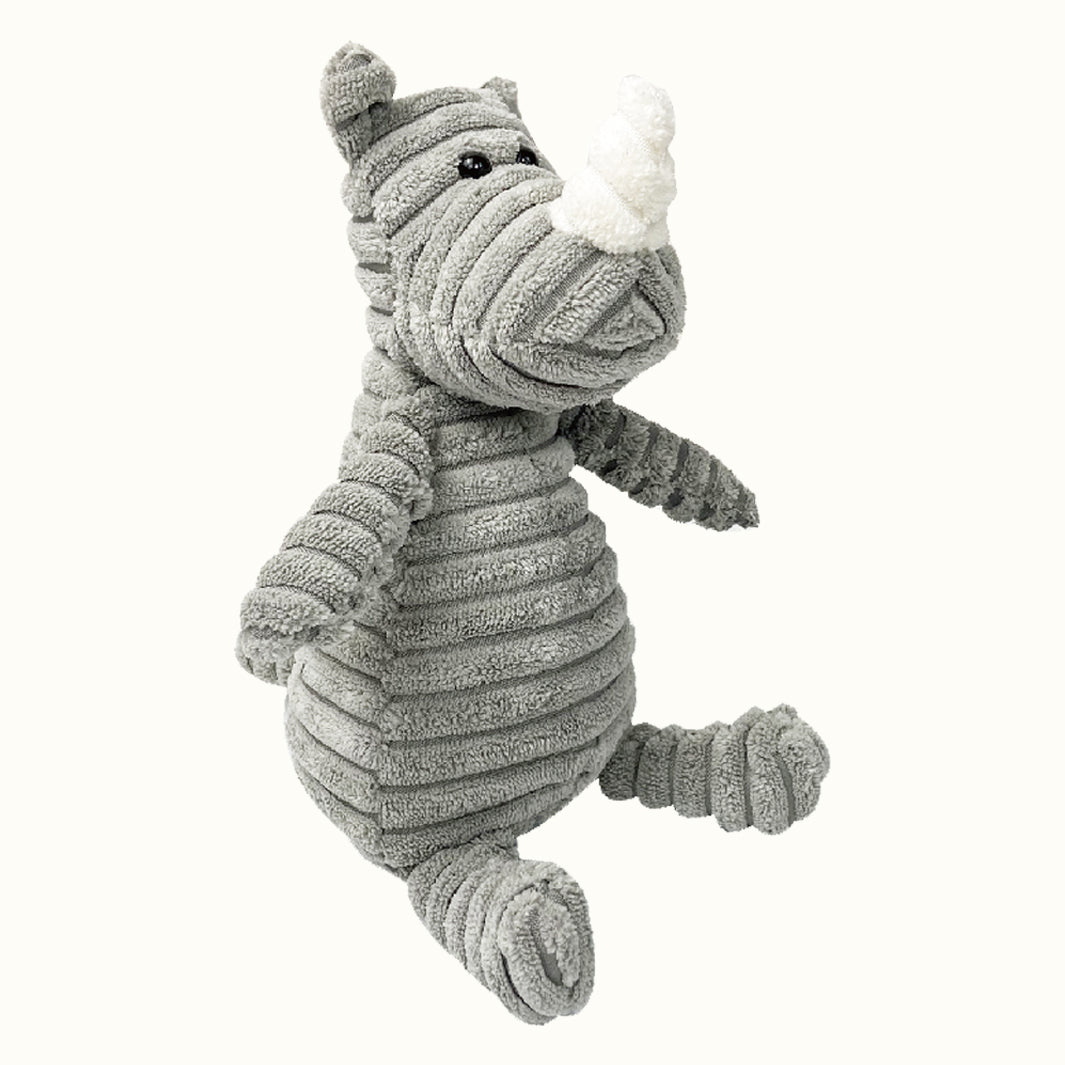




Leave a comment